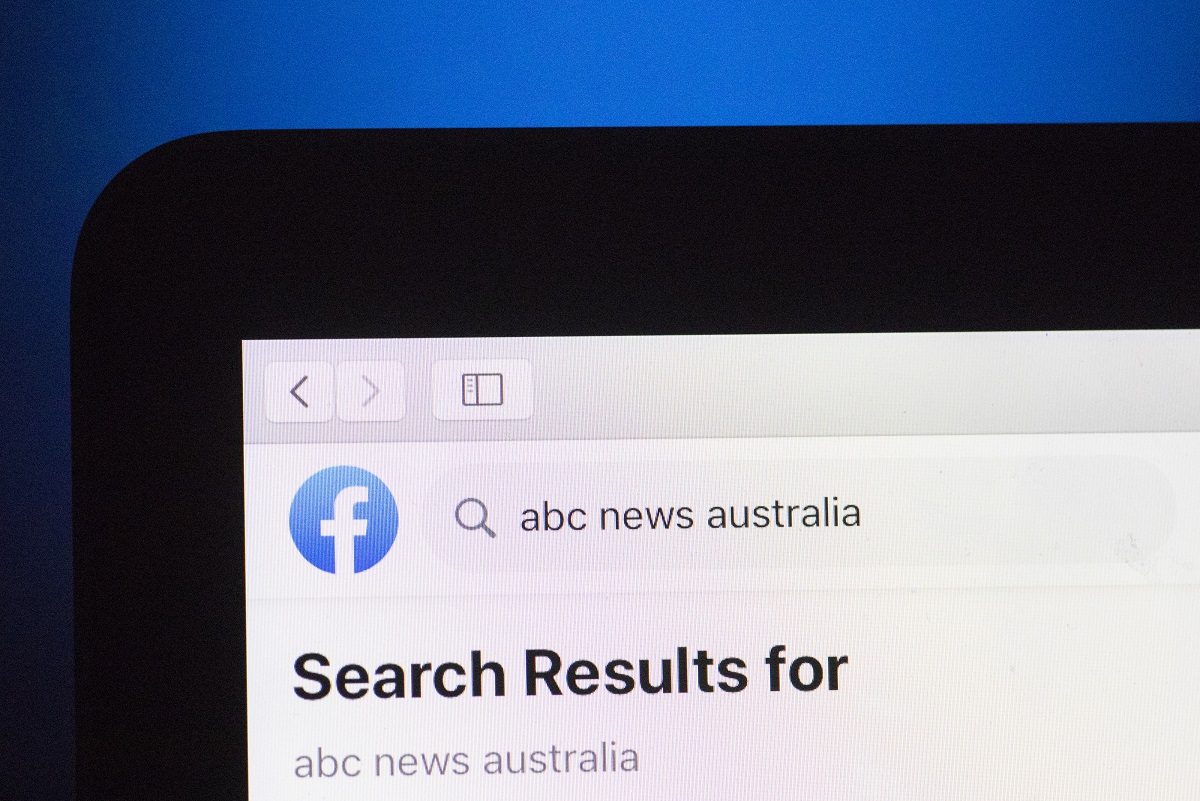في منتصف فبراير الماضي، استفاق الأستراليون على فيسبوك بلا أخبار، بعد أن قررت الشركة المالكة لموقع التواصل الشهير فيسبوك، منع صفحات وسائل الإعلام المحلية والدولية من الوصول للجمهور الأسترالي.
قرار فيسبوك اعتبر أشد تمظهر لصراع طويل كان قد اشتعل بين وسائل الإعلام الأسترالية والحكومة هناك ضد شركتي غوغل وفيسبوك، بسبب خلاف حول الحقوق الأدبية والتعويضات المادية التي تطالب بها وسائل الإعلام تلك، مقابل عرض أخبارها ومقالاتها على منصات كلتا الشركتين.
قيام شركة زوكربيرغ بمنع الصحف الأسترالية من استعمال منصاتها والنشر فيها استمر قرابة الأسبوع، قبل أن تتراجع عن هذا الحظر إثر بروز مؤشرات إمكانية التوصل إلى اتفاق يرضي الطرفين.
ما حدث في أستراليا ربما كان المثال "الأكثر شراسة"، إلا أنه من الصراعات المتزايدة التي بدأت تخوضها الصحف عبر العالم ضد شركات الإنترنت العملاقة. فشركة غوغل، أيضا، تواجه نفس الخلاف مع الصحف الفرنسية والأوروبية.
وفي الولايات المتحدة، قامت شركة HD Media المالكة لمجموعة من الصحف من بينها صحيفة فائزة بجائزة بوليتزر هي Charleston Gazette-Mail برفع دعوى قضائية في يناير/كانون الثاني 2020، قد تكون هي الأولى من نوعها، بولاية فرجينيا الغربية ضد غوغل وفيسبوك، تتهمهما باحتكار سوق الإعلانات الرقمية بصورة تتعارض مع القانون، وتتسبب في تراجع أو موت عشرات الصحف (1).
تشير المعطيات الإحصائية إلى أن عائدات الإعلانات في الصحف انخفضت بأكثر من 50٪ منذ 2006، متراجعة من 49 مليار دولار إلى 16.5 مليار دولار في 2017. كما اختفت قرابة 30 ألف وظيفة في الصحف، وهو انخفاض بلغ نسبة 60٪ على مستوى الصناعة الصحفية من العام 1990 إلى 2016 (2).
الصحف التي رفعت هذه الدعوى القضائية قامت أيضا بتوجيه نداء إلى جميع الصحف الأمريكية الأخرى من أجل التكتل والترافع في هذه القضية، خاصة وأن الأمر صار يتجاوز، برأي الصحفيين، الجانب المادي ويمس جوهر حرية التعبير والديمقراطية. يقول دوج رينولدز، مدير إحدى تلك الصحف التي رفعت الدعوى: "نحن لا نكافح فقط من أجل مستقبل الصحافة، ولكن أيضا من أجل الحفاظ على ديمقراطيتنا" (3).

معركة التعويضات تتوسع
أما في فرنسا، وبعد صراع طويل في المحاكم ضد فيسبوك وغوغل، اعترف القضاء بما يسمى حقوق المؤلف الموازية Droits voisins، وهو ما فتح الباب لأول مرة أمام حصول الصحف الفرنسية على تعويضات مالية. هذه الحقوق كان قد اعترف بها القانون في دول الاتحاد الأوروبي صيف 2019، ثم أقرها أيضا القانون الفرنسي في أكتوبر 2019. وبفضل ذلك، استطاعت بعض الصحف الكبرى مثل "لوموند" و"لوفيغارو"، إلى جانب حوالي 120 صحيفة وطنية محلية، أن تبرم في يناير 2021 اتفاقا أوليا حول تلك الحقوق الموازية مع غوغل لمدة ثلاث سنوات، يقضي بمنحها ما مجموعه 76 مليون دولار سنويا (3) مقابل وقف الدعوى القضائية التي رفعتها هذه الصحف أمام المحاكم، والتي دعمتها جهات حكومية مثل سلطة المنافسة l’Autorité de concurrence (هيئة عليا تنظم المنافسة وتمنع الاحتكار) التي مارست ضغوطا على العملاقين الأمريكيين وطالبتهما بفتح مفاوضات مع الصحف الفرنسية لإيجاد تسوية للنزاع.
وتشير بعض التقديرات إلى إمكانية حصول "لوموند"، مثلا، وهي أكثر الصحف انتشارا في فرنسا، على مليون و500 ألف يورو. في حين ما تزال المفاوضات متواصلة مع عدد من الصحف الأخرى خاصة المحلية، وكذلك مع وكالة الأنباء الفرنسية AFP التي تعتبر مصدرا رئيسيا للأخبار في فرنسا والعالم.
ويُنتظر أن يحدد اتفاق شامل في وقت لاحق، مبلغ التعويضات بناء على اتفاقيات منفردة مع كل صحيفة ستأخذ بعين الاعتبار أهمية الأخبار المنشورة في كل منها، وشهرتها، وغير ذلك من المعايير.
في المقابل، مازال الوضع متوترا وغير واضح في أستراليا؛ فقد تدخلت الحكومة للدفع من أجل تدشين مفاوضات مع شركتي فيسبوك وغوغل لتسوية صراعهما مع صحف هذا البلد. وقد أبرمت هاتان الشركتان اتفاقيات أولية تقضي بمنح ملايين الدولارات لبعض الصحف الكبرى مثل News and Nine وGuardian Australia، وكذلك مع بعض الصحف المحلية الصغيرة. إلا أنهما لم يتوصلا بعد إلى اتفاق مع وسائل إعلام أخرى معروفة مثل ABC. وهو ما يشير إلى احتمالية لجوء فيسبوك مرة أخرى لذات الإجراءات العقابية التي استخدمها مطلع هذا العام.

هل يساعد السياق الدولي على التسوية؟
في ظل سياق دولي يتميز بالضغط على عمالقة التقنية الخمسة: غوغل، آبل، فيسبوك، أمازون، ميكروسوفت، أو ما أصبحت تسمى بمجموعة "غافام" GAFAM، بدأت تظهر مؤشرات على تنازلات من هذه الأخيرة واستعدادها لتقديم جزء من أرباحها الضخمة سواء لصالح المؤسسات الصحفية أو لصالح الحكومات، حيث لم تسلم تلك الشركات من الانتقادات الحكومية لأنها لا تدفع سوى ضرائب قليلة أو تتهرب من ذلك، رغم ما تحققه من أرباح تقدر بمليارات الدولارات.
وتجلى هذا الضغط الدولي في تصريحات الرئيس الأمريكي الجديد جو بايدن، وبعد بروز توجه نحو فرض ضريبة عالمية موحدة على تلك الشركات؛ فقد أعلن الرئيس الأمريكي، التزاما ببرنامجه الانتخابي ذي الطابع الاجتماعي المتعارض مع سياسات سلفه دونالد ترمب، وأنه سيقوم بزيادة الضرائب على الشركات بشكل عام من 21% إلى 28%. وسيشمل ذلك حتى شركات "غافام"، والتي تعد رمز قوة بلاده التكنولوجية والمالية اليوم. ويساند الرئيس الأمريكي في سياسته هذه أيضا كل من ألمانيا وفرنسا، القوتان الأوروبيتان الرئيسيتان (4).
وتجني شركات "غافام" أرباحا كبيرة ومتزايدة خاصة منذ بدء جائحة كورونا؛ إذ تقدر مجلة ليكسبريس (5) أن أرقام معاملات فيسبوك، مثلا، ارتفعت بنسبة 48%، وغوغل بـ 34%، وأبل 12% وذلك بعد مرور أزيد من سنة على الجائحة. في حين بلغت أرباح "غافام" مجتمعة حوالي 88 مليار دولار.
وينتظر أن توفر هذه الضريبة العالمية الموحدة ما مجموعه 100 مليار دولار عبر العالم حسب تقديرات أولية. وانسجاما مع هذا التوجه الجديد في البيت الأبيض، أعلنت أيضا مجموعة الدول العشرين G20 عن اتفاقها على فرض حد أدنى وموحد عالميا من الضريبة على هذه الشركات الكبرى، وقد تم اتخاذ هذا القرار خلال نهاية شهر مايو/أيار الماضي.
الملاحظ هو أن شركات الإنترنت الكبرى خاصة فيسبوك وغوغل أطلقت منذ سنوات برامج لدعم الصحافة عبر العالم خاصة في ظل ظرفية الجائحة الحالية. وبلغ حجم الدعم الذي قدمته فيسبوك، مثلا، عبر مؤسستها المعروفة Facebook Journalism Project ما قيمته 300 مليون دولار مؤخرا، من أجل "خدمة الصحفيين في جميع أنحاء العالم عبر برامج إخبارية وشراكات متنوعة وشاملة، بما في ذلك مؤسسات لدعم الصحفيين أو منح الجوائز في أمريكا مثل Report for America ومركز بوليتزر، ومشروع أخبار المجتمع وبرنامج Local News Accelerator للتكوين الصحفي" (7). لكن هذا الدعم المالي والتكويني يبقى محدودا جدا بالمقارنة مع المداخيل الهائلة التي تجنيها شركات الإنترنت اليوم والتي كانت تجنيها الصحف في الأمس.

"قانون الخدمات الرقمية" و "قانون السوق الرقمية"
هل نحن إذن مقبلون على تحول وعلى "ثورة وشيكة" تمس موقع وهيمنة شركات "غافام" مع تداعيات كبرى محتملة على صعيد البنيات الاقتصادية والمالية العالمية بشكل عام؟ وهل نحن، بالتالي، على مشارف تحول سينعكس أيضا، بشكل خاص، على قطاع وسوق الإعلام؟
يعتبر عدد من الأخصائيين أن هناك فعلا مؤشرات تحول في هذا الاتجاه، إذ يرى روبرت تومسون الرئيس التنفيذي لشركة "نيوز كورب" العالمية، ناشرة الكتب ومالكة صحف كبرى مثل "وول ستريت جورنال" وشركة "داو جونز"، أن الصحافة قد تكون على موعد اليوم مع "نَفَس جديد"، ومرد هذا التفاؤل برأيه هو ما نشهده من تغير في العلاقة بين منصات الإنترنت وناشري الصحف (8).
ومن جهته، يرى الخبير المعروف والمدير السابق لصحيفة "نيويورك تايمز" مارك تومسون أن المستقبل سيحمل بالتأكيد اتفاقا بين طرفي الصراع الحالي: الصحف والمنصات الكبرى. لكنه يفضل عدم تدخل مؤسسات التقنين التابعة للحكومات في هذا الخلاف، كما حصل مثلا مع هيئة المنافسة في فرنسا التي ضغطت لصالح صحفها بشكل سمح بحصول هذه الأخيرة على تعويضات مالية أولية. وفي هذا الصدد يرى مارك تومسون أنه من الأفضل أن تكون هناك شراكة تجارية متفاوض عليها بشكل حر بين الناشرين والمنصات الكبرى، بحيث تحصل هذه الأخيرة على شيء مفيد لها؛ فهي علاقة تجارية أكثر مما هي علاقة مفروضة نتيجة التقنين (9).
وتبدو مقاربة مارك تومسون في هذا السياق ذات طبيعة ليبرالية أكثر من اللازم رغم وجود توجهات إيجابية للحل والتسوية. فمقاربته تنطلق من فكرة أن السوق سينظم نفسه بنفسه بشكل تلقائي وفق المنطق الشهير "دعه يعمل دعه يمر"، لكن فرصة تحقق ذلك تبقى محدودة دون ضغوط الدول وهيئات التقنين الرسمية، خاصة إذا علمنا السلطة والتأثير الذي صارت تملكه المنصات الكبرى على الصعيد السياسي والانتخابي، وعلى مستوى ضمان توازنات المنظومة السياسية للديمقراطيات الغربية أيضا. وهو ما ظهر بجلاء مع فضيحة شركة "كامبريدج أناليتيكا" التي اتهمت بالتلاعب بنتائج الاستفتاء حول خروج بريطانيا من الاتحاد الأوروبي (البريكسيت) والانتخابات الرئاسية في أميركا في 2016 بعد استحواذها على بيانات ملايين المستخدمين في فيسبوك. ولهذا سبق أن وجه رئيسا هيئتي تقنين قطاع الإعلام السمعي البصري في ألمانيا وفي فرنسا نداء مشتركا إلى المسؤولين عن جميع هيئات تقنين هذا القطاع في أوروبا من أجل التحرك وإجبار كل المنصات على الخضوع للتقنين (10). والهدف من ذلك، برأيهما، هو "وضع قواعد واضحة تسمح بضمان التوازن بين احترام القوانين وحرية التعبير" من أجل محاربة التزوير والأخبار الزائفة، وخطابات العنف والعنصرية التي لا تحاربها هذه المنصات بنجاعة كافية، خاصة وأن القوانين المعمول بها صارت قديمة، بعضها يعود إلى أكثر من عشرين سنة. إن الهدف ليس هو فرض الرقابة على الإنترنت والحد من حرية التعبير، كما يؤكد هذان المسؤولان، ولكن الهدف هو "بناء حرية تقوم على دولة الحق والقانون".
وانطلاقا من هذه المقاربة الشمولية التي تمس المضامين المنشورة على الإنترنت، من جهة، وتمس النموذج الاقتصادي للمنصات ومسألة المنافسة وعدم الاحتكار، من جهة أخرى، اقترحت اللجنة الأوربية، وهي الجهاز التنفيذي للاتحاد الأوربي، قبل سنة، مشروعين للتقنين: الأول هو Digital Service Act "قانون الخدمات الرقمية"، والثاني هو Digital Market Act "قانون السوق الرقمية". وقد تمت صياغة هذين المشروعين بعد مشاورات طويلة مع مختلف الفاعلين وسيتم تطبيقهما في جميع دول الاتحاد. المشروعان حاليا في طور النقاش بحيث ستقدم كل دولة مقترحاتها وتعديلاتها عليهما. وهو ما يمكن أن يلهم الدول العربية لحماية صحفها من الانقراض وتعزيز نماذجها الاقتصادية في مواجهة زحف الشركات الكبرى. وتقترح فرنسا في هذا الصدد، تشديد بعض المقتضيات القانونية من أجل تطبيق صرامة أكثر مع المنصات، وينتظر أن يدخل هذان المشروعان حيز التنفيذ في بداية 2022.
مراجع
-
المرجع السابق.
-
المرجع السابق.
-
مقال في القناة التلفزية الفرنسية المتخصصة في الاقتصاد BFM https://bit.ly/3g10jcl
-
تصريح صحفي في صحيفة لوموند على الرابط التالي: https://bit.ly/3coJ7ej
-
انظر مجلة "ليكسبريس". عدد 6 ماي 2021. ص 12.
-
https://www.facebook.com/journalismproject/coronavirus-update-news-industry-support
-
المرجع السابق.
-
انظر النداء المنشور في صحيفة لوموند 10 يوليو/تموز 2020.




















![Palestinian journalists attempt to connect to the internet using their phones in Rafah on the southern Gaza Strip. [Said Khatib/AFP]](/sites/default/files/ajr/2025/34962UB-highres-1705225575%20Large.jpeg)




















